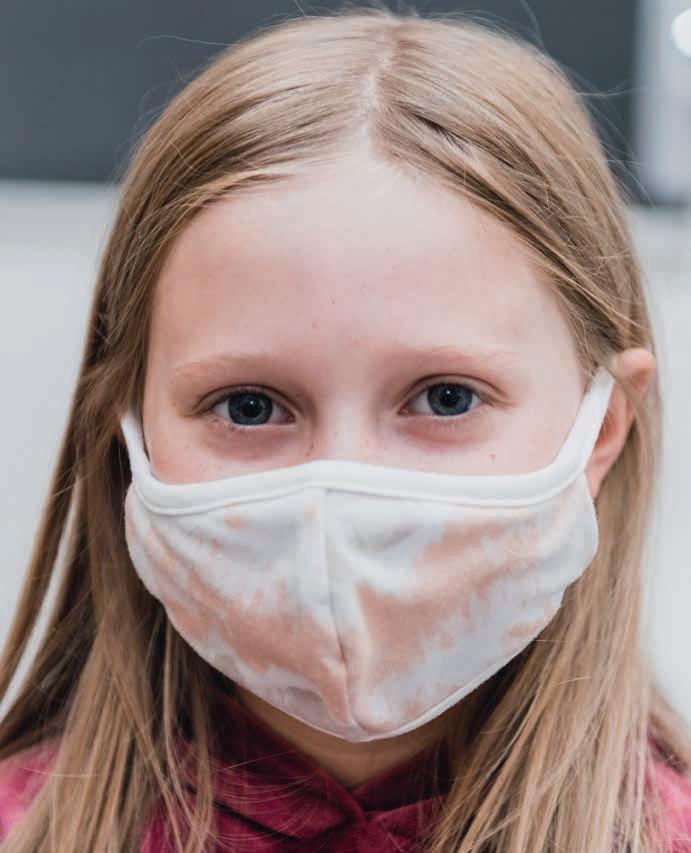PSYCHOLOGY The year 2020 brought a lot of changes – from saying goodbye to a treasured former colleague, former division chief Barbara Rzepski, PhD, to welcoming new ones, all while standing up in the face of the Covid-19 pandemic. Throughout, members of the Division of Pediatric Psychology remained focused on improving the mental health of all of Connecticut’s children. DIVISION OVERVIEW Our division is comprised of 13 pediatric psychologists spread across eight divisions at Connecticut Children’s (Obesity, Pain & Palliative Medicine, GI, Consultation/ Liaison, Rheumatology, Hematology-Oncology, Primary Care, Sleep, and the NICU). We are dedicated to improving treatment options, testing new therapies, being the voice for mental health diagnosis and treatment in the state of Connecticut, and training the next generation of providers.
102
ANNUAL ACADEMIC REPORT 2020
We are committed to increasing access to mental health care for families. Our psychologists in the Division of Pain and Palliative Medicine brought Comfort Ability to Connecticut Children’s. This is a one-day, evidencedbased group intervention designed to increase the accessibility of psychological services for patients who live with chronic pain and for their families, especially those that live far away or are unable to attend frequent appointments. Siddika Mulchan, PhD, in the Sickle Cell Clinic, has created a similar monthly treatment group for youth to overcome transportation barriers. Lynelle Schneeberg, PsyD, created a bedwetting alarm loan program for families that have a child who experiences nocturnal enuresis so these families do not have to purchase this device. Melissa Santos, PhD, interim head of the Division of Pediatric Psychology and clinical director of the Pediatric Obesity Center, uses technology to engage families in treatment through weekly text messaging and by utilizing various forms of social media. Dr. Santos also launched an eight-week Facebook Live series on the Connecticut Children’s Facebook page and discussed creating a coping toolkit
while Dr. Schneeberg discussed improving sleep habits in young children. We are committed to implementing new therapies and guidelines. Amy Signore, PhD, is working on bringing Parent-Child Interaction Therapy (PCIT) treatment to primary care with the goal of preventing and treating disruptive behaviors in an at-risk population. Similarly, Dr. Mulchan is utilizing PCIT in the Hematology-Oncology division as she completes her certification. Brad Jerson, PhD, of the Division of Digestive Diseases, Hepatology and Nutrition, has created a program to support transition of care and increased self-management within families of youth with inflammatory bowel disease as they graduate high school. Timothy LaVigne, PhD, in the Division of Pain and Palliative Medicine, is launching biofeedback services for youth with headaches. In collaboration with Richelle deMayo, MD, division chief of Biomedical Informatics, he is developing a multidisciplinary weekly headache treatment group that will highlight the intersection of psychological and medical approaches to headache management.














































